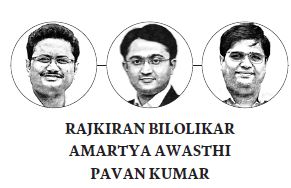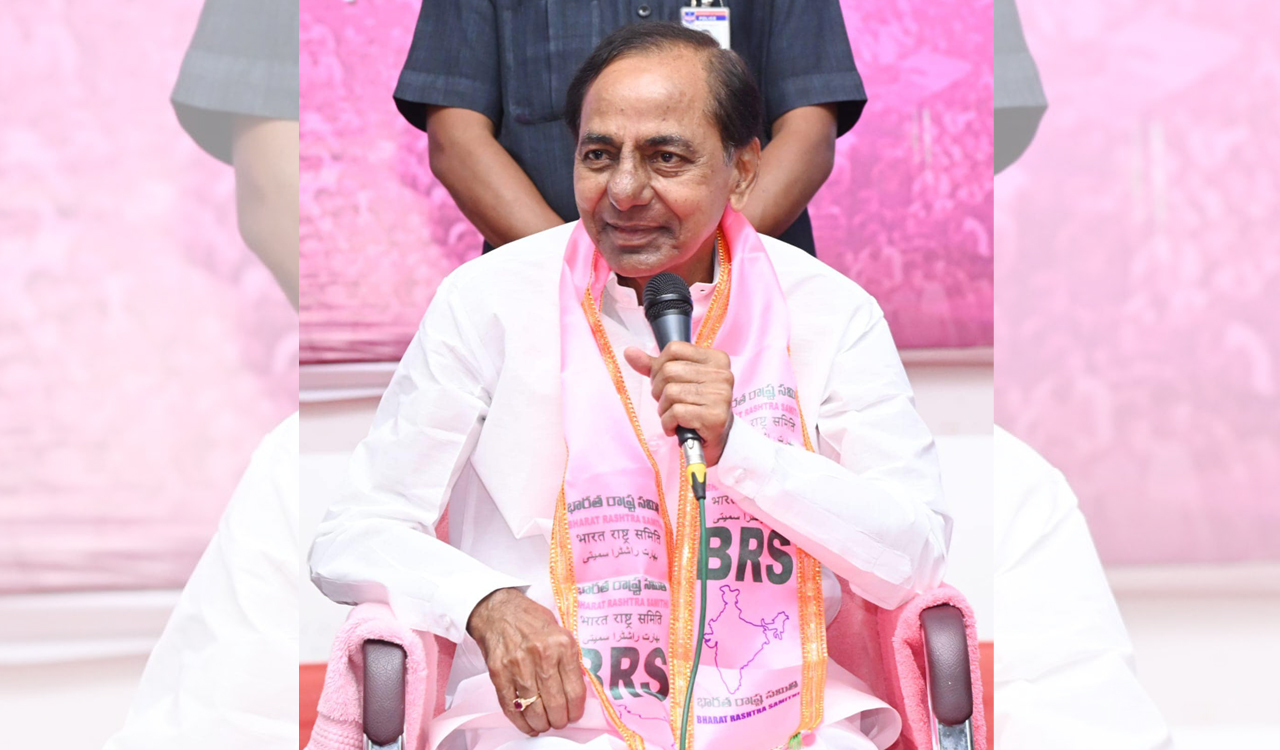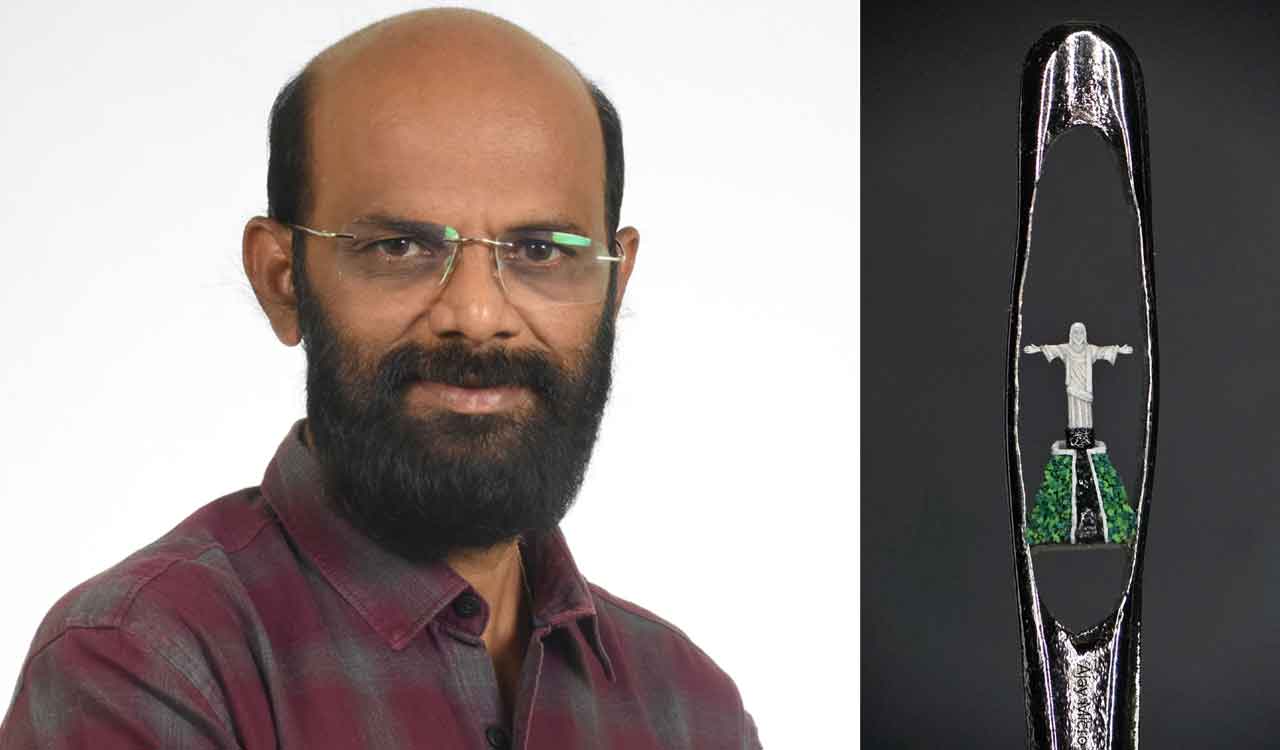Opinion: Building sustainable mobility revolution
There is an immense need to prioritise clean mobility to tackle pollution and create a greener future

By Rajkiran Bilolikar, Amartya Awasthi, Pavan Kumar
Telangana has quickly established itself as a hub for innovation, technology and industrial growth. As urbanisation and industrial growth accelerate, there is an immense need to prioritise clean mobility to tackle pollution, reduce carbon emissions, and create a greener future. To charge up this transition, the State is taking pioneering initiatives both on the supply side and demand side of the equation.
Supply Side
One aspect that is driving this metamorphosis is the Telangana Mobility Valley (TMV), a pioneering initiative emerging as a catalyst for this transformation, attracting investments in manufacturing, testing, validation, engineering, R&D and skilling. The aim is to foster innovation across the EV value chain in the State, realising a robust ecosystem that builds for the world. The valley has become a magnet for domestic and international players.
Automotive Test Systems (ATS) and TUV Rheinland India Pvt Ltd have joined forces to establish an automotive technology centre. This state-of-the-art facility to be set up in the Yenkathala cluster will serve as a hub for testing and validating EV technologies, facilitating pre-certification testing, driving accelerated development, go-to market and commercialisation. The facility would provide access to 15-plus modern labs covering tests for EVs, battery, charging, interface electronics & components, EMI & EMC, telematics, structure, thermal simulation, crash, corrosion and durability, powertrain, emissions, sensors for CAV (connected and autonomous vehicles), fuel cells and more.
Further, the physical proving grounds would include various tracks such as gradient, comfort, wet-braking, slow lane and corrugated, high-speed and first-of-its-kind CAV track to feature city simulation and ADAS (advanced driver assistance system).
Beyond testing, TMV is also attracting manufacturing investments. Biliti Electric has chosen Telangana as the location for its new manufacturing facility. This plant will produce electric three-wheelers and Li-ion battery packs, creating thousands of jobs and contributing to the local economy.
Telangana became one of the first sub-national provinces to sign the Global MoU endorsing transition to Zero Emission Trucks by 2040 at the Clean Energy Ministerial in 2022
Indicative investments from these organisations may amount to Rs 450 crore or more cumulatively. TMV’s success extends beyond its physical infrastructure. It has fostered a culture of innovation and collaboration that is attracting startups and established companies alike. The State government’s support, coupled with the TMV’s resources, has created a fertile ground for the development of cutting-edge EV technologies.
As part of TMV’s efforts, the State is also facilitating industry and academia collaborations to skill professionals and thus support the workforce needs both in the State and beyond. Various such collaborative initiatives have already been established with a focus on engineering and R&D in advanced areas such as ADAS, modelling, simulation, vehicle dynamics, controls, networks and systems engineering.
The state will also facilitate the creation of skilled blue-collar workforce for the EV sector through similar initiatives with industrial training institutes and other institutions. The recently announced Young India Skill University for example may be leveraged to have the necessary training and skilling centres for electric vehicle, battery and components sectors.
Demand Side
The transition to electric vehicles is not without its challenges. Concerns about battery life, charging infrastructure and costs are among the factors that may hinder adoption. However, the rapid advancements in EV technology, economies of scale that are reducing battery prices and unique business models such as battery swapping and battery-as-a-service (BaaS) that de-couple the cost of the battery from the vehicle cost (by certain estimates, batteries contribute between 40%-50% to the vehicle costs) are gradually addressing these concerns.
Telangana became one of the first sub-national provinces to sign the Global MoU endorsing a transition to Zero Emission Trucks (ZETs) by 2040 at the Clean Energy Ministerial in 2022. It is also engaging with stakeholders to identify pathways to establish a roadmap on electrification targets for fleets operated by aggregators such as e-commerce delivery, ride-hailing and third-party logistics service providers. By moving from internal combustion engine vehicles to EVs in such large fleets, Telangana can reduce emissions, improve air quality and reduce dependence on fossil fuels.
Electrification Roadmap
A critical aspect of this electrification roadmap is the need for the availability of appropriate vehicle models that match use-cases across the aggregator fleet categories such as 2Ws, 3Ws and 4Ws (passenger and goods). For this appropriate supply-side regulations that aid vehicle OEMs to expand their EV portfolio would be immensely supportive. Administrative Staff College of India (ASCI) and Natural Resources Defense Council (NRDC), in collaboration with the Industries and Commerce Department, Government of Telangana, organised a workshop recently at Hyderabad, to build the case for the fleet electrification roadmap and seek insights from diverse stakeholders. Participants discussed the role of government policies in incentivising EV adoption, such as tax breaks, subsidies and the need for complementary regulations on both the demand and supply side. The importance of building a robust charging infrastructure to support electric fleets was also highlighted.
Telangana’s commitment to electric vehicles is driven by a desire to create a sustainable future. The Telangana Mobility Valley and the State government”s supportive policies are creating a conducive environment for EV adoption. As the EV ecosystem continues to grow, Telangana is poised to become a global leader in sustainable mobility.

(Rajkiran Bilolikar is Professor and Director, Centre for Energy Studies; Amartya Awasthi and Pavan Kumar are Assistant Professors at Centre for Energy Studies, Administrative Staff College of India)
Related News
-
KCR extends Christmas wishes to people of Telangana
-
Telangana’s micro-sculptor Ajay Kumar sculpts Brazil’s “Christ the Redeemer” in the eye of a needle
-
Leopard spotted and panic prevailing in Nandipahad village under Maddur mandal
-
Unpaid loans: DCCB erects auction flexis in farmers’ fields in Kamareddy
-
Sandhya Theatre stampede case: Allu Arjun questioned for 3 hours by Chikkadpallly police
29 mins ago -
Telangana: TRSMA pitches for 15% school fee hike and Right to Fee Collection Act
36 mins ago -
Former Home Secretary Ajay Kumar Bhalla appointed Manipur Governor, Kerala Governor shifted to Bihar
40 mins ago -
Hyderabad: Organs of 74-year-old man donated as part of Jeevandan
44 mins ago -
Opinion: The China factor in India-Nepal relations
1 hour ago -
Editorial: Modi’s Kuwait outreach
1 hour ago -
Telangana HC suspends orders against KCR and Harish Rao
2 hours ago -
Kohli and Smith will be dangerous and hungry: Shastri
2 hours ago




